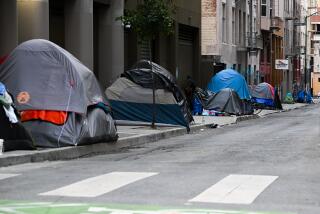Why scarcity leads to bad decisions
Poor people are disproportionately likely to make bad decisions, such as taking out loans they cannot repay, eating unhealthfully and dropping out of class. It is sometimes said that such people are authors of their own misfortune.
Sendhil Mullainathan, a Harvard economist, and Eldar Shafir, a Princeton psychologist, have a different view in their book, âScarcity: Why Having Too Little Means So Much,â published by Times Books.
They argue that lousy decisions are an effect of poverty as well as a cause.
The mind-set that produces bad decisions, they say, is triggered by scarcity of all kinds.
Scarcity is everywhere, yet we are often blind to it. It warps the decisions of busy professionals who are short of time, lonely hearts who want for social contact and dieters who must ration their calories, as well as the poor.
To misquote Forrest Gump, life is like a newly opened box of chocolates: You begin to eat, yet your supply seems undiminished until it is almost gone. Only then do you eke it out, weighing the attractions of a morning treat against an afternoon sugar rush.
Intellectually, you never thought the chocolates would last forever, yet you behaved as though you did not perceive the scarcity until you neared the bottom of the box.
It is when we do not have enough to meet our immediate needs that we are most likely to compute the trade-offs that are implicit in our choices.
When Mullainathan and Shafir interviewed well-heeled commuters, they found them more willing to travel the extra miles to a distant shop to save $50 on a $100 purchase than to travel the same extra distance to save the same amount on a purchase worth $500 â even though the costs and benefits are the same.
When they visited a soup kitchen, their respondents were savvier. They conclude that the poor, who are used to making painful trade-offs, âare experts in the value of moneyâ and âless prone to [such] inconsistencies.â
However, this expertise may come at a cost. Thrift requires mental effort, itself a scarce resource, and the authors set out to investigate whether their preoccupation with money leaves the poor with less mental bandwidth for other tasks.
They found that hard-up shoppers performed worse on standard intelligence tests when they were first asked about a hypothetical financial dilemma involving a loss of $1,500 than when confronted with a smaller loss of $150.
Rich shoppers did just as well after considering either dilemma. âOur study revealed that simply raising monetary concerns for the poor erodes cognitive performance even more than being seriously sleep deprived,â they say. Some readers, though, will be wary of concluding too much from IQ tests, which are notoriously unreliable indicators of real-life mental agility.
Yet there is a more visible toll on the mental lives of the poor. Spending on essentials must be cut, large expenditures foreseen and saved for and impulse purchases resisted.
The authors show how difficult it is to sustain this juggling act for long enough to escape poverty. Working in India, they paid off the debts of hundreds of street vendors and followed them for a year. For a time, they report, âit looked as if they now saw the hazards in the debt trap and persisted in staying out of it.â
But, one by one, the vendors slipped, âfall[ing] back into the scarcity trapâ because they did not have enough slack to weather financial shocks.
The authors are least convincing when they reach beyond poverty for more general conclusions â for example, assimilating loneliness into the analysis under the guise of âsocial scarcity.â
The predicaments of a cash-poor Indian street trader and a time-poor chief executive are probably less similar than they seem. At the core of the book, however, is an enlightened account of how poverty begets poverty, which should inspire new ideas about how to release people from it.
Mark Vandevelde is a contributor to the Financial Times of London, in which this review first appeared.
More to Read
Inside the business of entertainment
The Wide Shot brings you news, analysis and insights on everything from streaming wars to production â and what it all means for the future.
You may occasionally receive promotional content from the Los Angeles Times.










